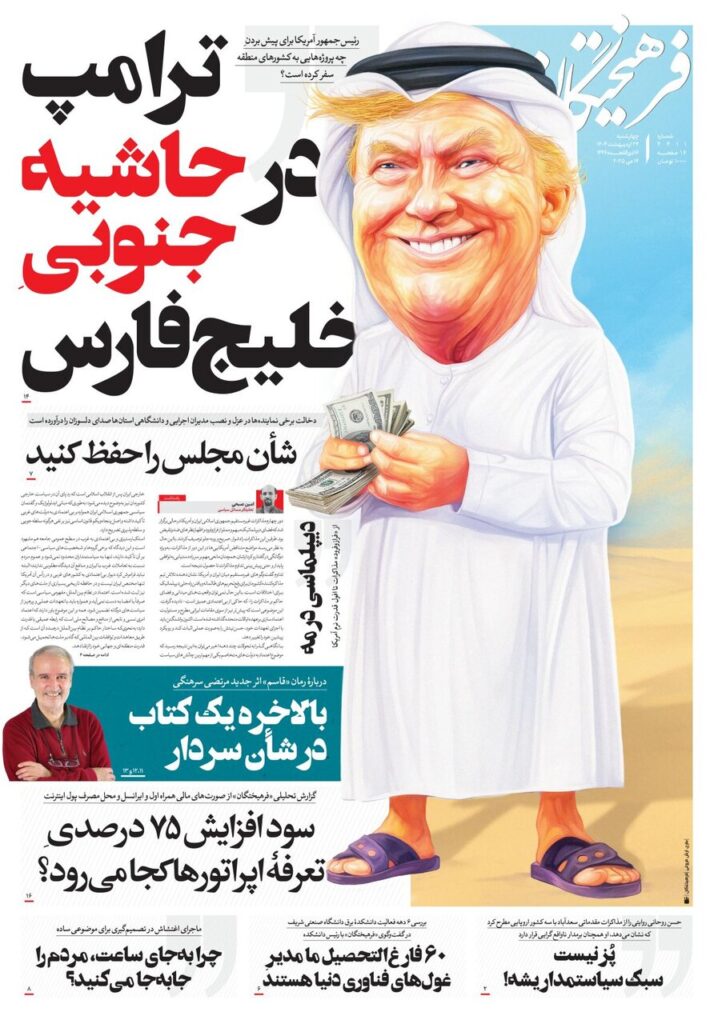In an interview with Tehran-Seyed Sajjad Tabatabaei, Farhikhtegan discussed Iran’s proposal to form a joint nuclear consortium with the Persian Gulf countries.
He said: One of Iran’s proposals at the negotiation table that proves the peaceful nature of the nuclear program is to form a joint nuclear consortium with the Persian Gulf states, meaning that some of these countries will oversee the uranium enrichment process in Iran’s soil. The main goal is to build trust in Iran’s nuclear program, strengthen friendship between Iran and the region’s Arab countries, create a basis for a common interest, and pave the way for close economic and political cooperation. When the JCPOA was signed, some Arab countries stood by themselves and played a destructive role in killing the agreement. In some cases, they even considered the JCPOA to be a threat to their interests. Now, new ideas aim to prevent excuses and generate common interest in the local Arab countries.
Shargh: Why are European trios threatening to activate the snapback mechanism?
Sharg has analysed the threat from European troikas and stimulated a snapback mechanism that would return UN Security Council sanctions against Iran. It writes: Araguchi’s warnings about European troika show the sensitivity of the present moment in Iran-European relations. Negotiations are underway between Tehran and Washington, but the troika plays a dangerous diplomatic game by threatening to activate the snapback mechanism. Perhaps Washington is trying to split the task with Europe. The White House is not reluctant to strengthen pressure on Tehran by maintaining the lever of the snapback mechanism in European hands. This approach could lead to a collapse of the JCPOA and escalation of local tensions. The future of Iran-European relations and even the stability of the region rely on decisions at this critical moment. Europe faces several challenges in this diplomatic game. First, the risk of diplomatic isolation when Russia and China oppose activating snapback mechanisms. Second, as Aragut warned earlier, the weakening of European position in nuclear negotiations could be forced to change the nature of its nuclear program by activating snapbacks.
Arman-e-Melli: Middle Eastern Trump
Arman-e-Melli analyzed Trump’s trip to the Middle East, writing: Many Middle Eastern analysts believe Trump’s trip to the Middle East is not unrelated to the Tehran-Washington negotiation process. This is where other issues such as regional security, energy, defense and economic cooperation are at the top of Trump’s agenda at meetings with leaders of Saudi Arabia and other Persian Gulf countries. Given the rapid international development, the White House shows it is seeking to strengthen strategic cooperation with partners in the region. Several rumors indicate that the US president will propose a plan to end the Gaza War during this trip. The White House actions in this context include the formation of a postwar interim government in Gaza and the new security arrangements in Gaza, paving the way for the resumption of normalization consultations. The US President held a secret meeting with Israel’s strategic minister to discuss the Gaza War, nuclear talks and nuclear association with Iran. Given the continued negotiations with Iran and the enormous contracts in the Middle East, it seems we should wait for the end of the Gaza War.
Donya-e-eqtesad: Both countries are seeking an agreement
Donya-e-eqtesad has dedicated his compilation to Iranian and the US desires because of the agreement and obstacles. The paper appears to have two driving forces, both Iran and the US, pushing both sides towards negotiations and agreement. On the US side, the main issues include China and the economic crisis on the Iranian side. As the two driving forces move sideways towards the contract, the chances of an agreement increase. Of course, the US wants an agreement to allow American companies to invest in Iran’s profitable sectors. Some forces are interested in preventing an agreement between Iran and the United States. The first and most important opposition are Israeli and Israeli lobbies, as well as extremists and warmers in the United States. In Iran, extremists and those who benefit from sanctions are also not interested in seeing negotiations come to fruition. However, if an agreement is reached, Iran must be prepared to engage with the world and investors interested in investing in Iran. Therefore, as negotiations progress and possible outcomes are achieved, there must be plans to create the ability to attract investors.

